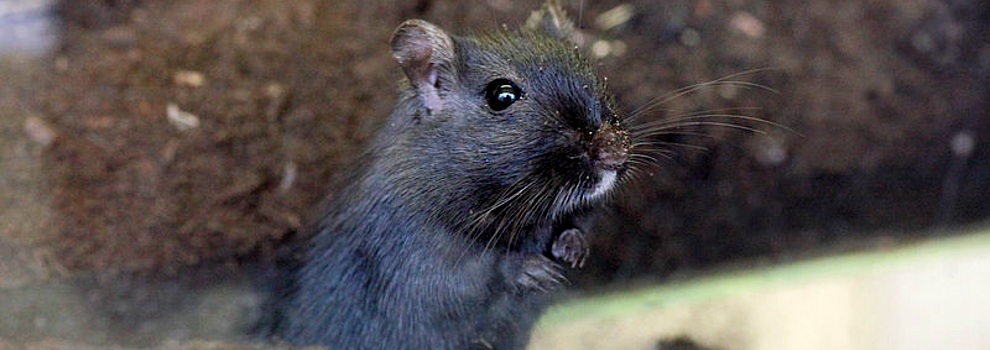- Find a Pet
- Advice and Welfare
- Ways to Give
- Get Involved
- What We Do
- Search
- My RSPCA
- Report a concern
- Gift in Wills
-
Colour modeVivid Calm
- Home
- Advice and welfare
- Pets
- Rodents
- Gerbils
- Health and welfare
Caring for your gerbils
Responsible gerbil ownership means looking after their health and welfare at all times. On this page, we'll take you through what you'll need to do to make sure your gerbils live a happy and healthy life.

Daily gerbil health checks
Gerbils can be affected by many diseases, and feel pain just like we do. They can also become infected by contaminated food, water or litter material. The wrong environment and/or stress can lead them to develop repetitive behaviours, such as digging in one corner for long periods of time.
You're more likely to spot when something's wrong with your gerbils if you're used to how they look and behave normally. Handling your gerbil can be stressful for them, and they can be difficult to catch. However, daily health checks mean you'll quickly notice signs of illness or pain and you can get them to the vet as quickly as possible. You should only ever give them medicines recommended for them by the vet.
Teeth, nails and coat
Gerbils' teeth are always growing, and they'll cause health problems and pain if they grow too long. If a gerbil has a problem with its teeth, they may stop eating. Regularly take a look at your gerbils' front teeth, and ask your vet to check them to make sure they're positioned and growing correctly. If your gerbils' teeth become overgrown, take them to the vet.
Gnawing objects
Gerbils need to gnaw objects to keep their teeth regularly worn down, so it's important to give them things to chew on. Wooden chew-blocks are ideal, and gerbils particularly like willow, hazel, beech, birch and branches from fruit trees. Don't give your gerbils ivy, yew or holly branches, as these are poisonous.
Claw checks
You should also check your gerbils' nails regularly to make sure they're not getting too long. Gerbils naturally wear their nails down walking on rough surfaces.
Sand or dust
Give your gerbils a shallow tray filled with clean, fine sand or `chinchilla dust' to bathe in each day, as this keeps their coat in good condition. Remove and sieve clean after they've used it.
When you go away
If you're heading off on holiday, make sure you have a responsible friend or family member look after your gerbils while you're gone. Introduce them to your pets before you leave, and make sure they know everything they need to know about caring for your gerbils.
Keep your gerbils in their normal gerbilarium, and leave their usual food for your friend to give to them. Try not to move your gerbils unless absolutely necessary, as this keeps stress to a minimum.
For lots more on caring for your gerbils, read through our series of handy guides to gerbils, including their:



